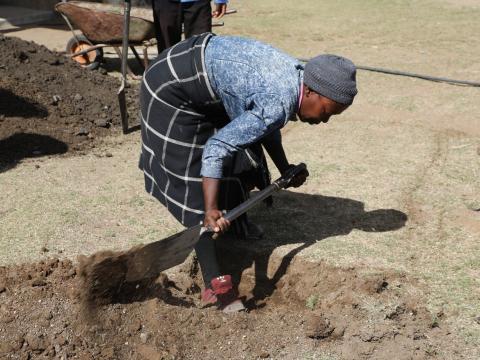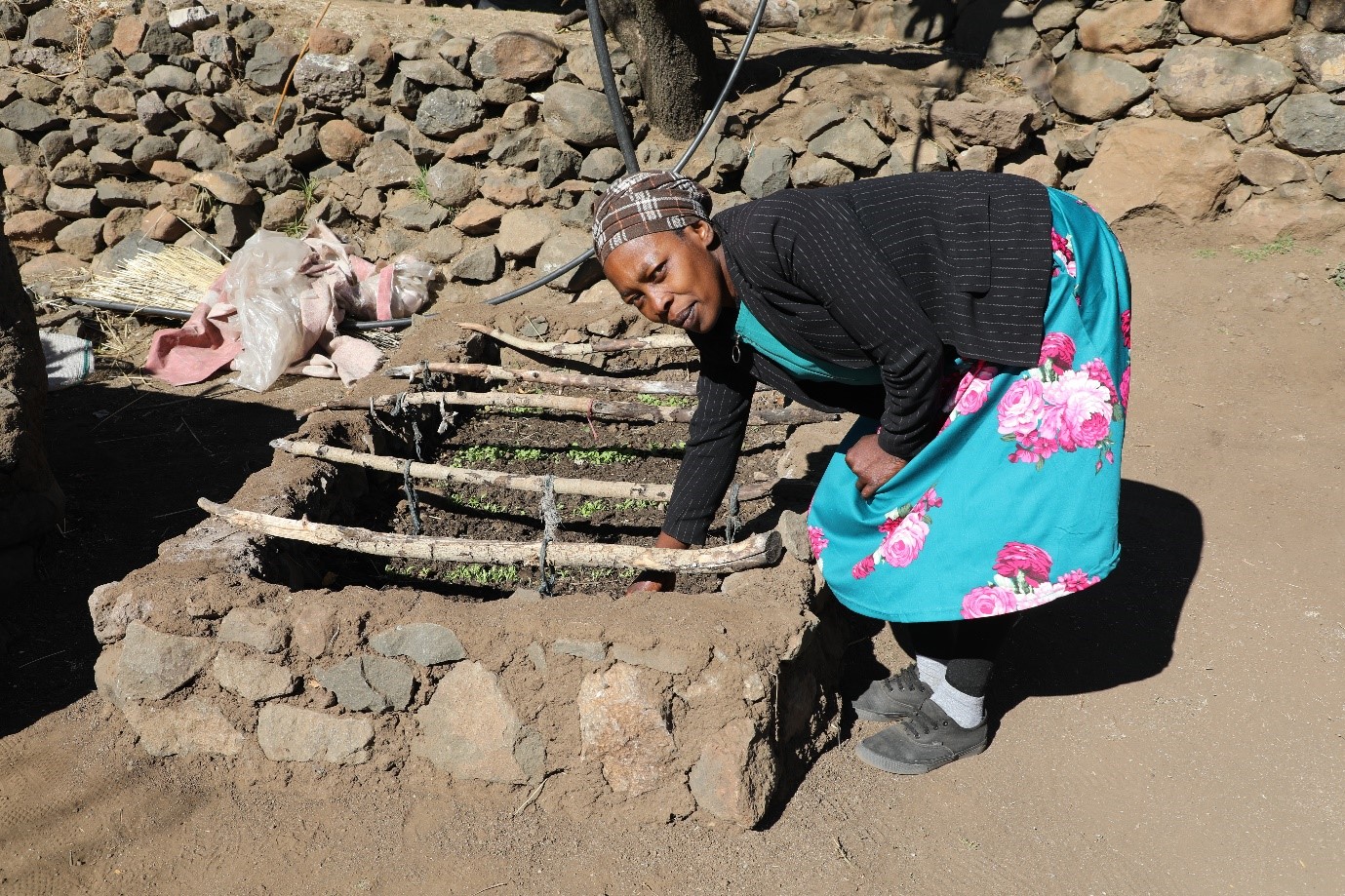’Manteboheng’s Garden of Hope: How Climate - Smart Agriculture is tackling Food Insecurity

By: Reentseng Phephetho, Communications and Digital Officer, Lesotho
In the remote district of Mokhotlong, a small community called Masaleng faces the harsh effects of climate change daily. This area, often plagued by strong winds and relentless droughts, has seen its residents struggle to maintain their livelihoods. Among them is ‘Manteboheng Thupa, a resilient woman raising nine children, whose life has been significantly affected by the extreme weather.
"Life is really hard during this era of climate change," Manteboheng shares. "It is difficult to feed my children, especially during winter when crops just dry up and leave us with nothing to eat."
Manteboheng's struggle is common in Masaleng. Despite her efforts to cultivate crops, the persistent drought and scarcity of water have made it almost impossible. She often travels long distances to fetch water for her garden, but the moisture doesn't last, and her crops fail, leaving her family without food.
Recognizing the dire situation in Masaleng, World Vision Lesotho conducted a vulnerability assessment through the Faith Partnerships on Environmental Stewardship and Climate Action Project. This initiative aims to empower faith leadersto contribute to household and community resilience, including child participation in climate change adaptation and mitigation.
Led by Mr. Lesala, a village faith leader, World Vision visited the Masaleng community and introduced the concept of climate-smart agriculture. They demonstrated the double-dug trench garden method, a technique that involves digging deep trenches and filling them with organic matter, creating a moisture -retaining environment that supports crop growth even during dry periods. About 35 community members, including Manteboheng, attended the workshop.
“This method is a game-changer for our community, " Mr. Lesala enthuses. “It allows us to work with nature, not against it, ensuring food security even in the face of changing climate patterns”.

Manteboheng's dedication during the training was evident, reflecting her determination to improve her family's situation. Inspired by the demonstration, she implemented the double dug trench method in her own garden. Her optimism was clear as she expressed her hope for the future.
"I did not know that crops could be grown even during winter because I used to plant with no success," ‘Manteboheng remarks.
"But with this method, I hope and believe that I will be able to feed my nine children throughout the year, regardless of the season, and for many years to come."
With this innovative approach, ‘Manteboheng's life has taken a positive turn. The double-dug trench garden has given her hope and the means to provide for her family despite the adverse effects of climate change. Her household will now enjoy a steady supply of food, ensuring her children's well-being and future.
The success of the Faith Partnerships on Environmental Stewardship and Climate Action Project in Masaleng showcases the power of community-based solutions in combating climate change. Through collaboration, education, and dedication, families like Manteboheng's can overcome challenges and build resilience against the impacts of a changing climate.
In light of the recent declaration of a food insecurity disaster in Lesotho, largely attributed to the El Niño-induced drought, the urgency of adopting climate-smart agriculture has never been greater. The adoption of the double-dug trench garden method in Masaleng serves as a beacon of hope amidst this crisis. As communities across Lesotho grapple with the effects of climate change, the adoption of such innovative and sustainable farming practices becomes not just beneficial, but crucial for survival.
World Vision Lesotho, alongside the government of Lesotho and development partners is calling on all communities to embrace these climate-smart approaches. By doing so, Lesotho can build a more resilient agricultural sector, capable of withstanding environmental challenges and ensuring food security for generations to come. The story of Masaleng shows that even in the face of seemingly insurmountable odds, with the right knowledge and techniques, communities can not only survive but thrive.
As Lesotho faces this food security challenge, the message is clear: climate-smart agriculture offers a path forward, turning crisis into opportunity and fostering a sustainable future for all. In Masaleng, hope is being planted one garden at a time, and the future looks brighter for families like ‘Manteboheng's, who now have the tools and knowledge to thrive amidst adversity.